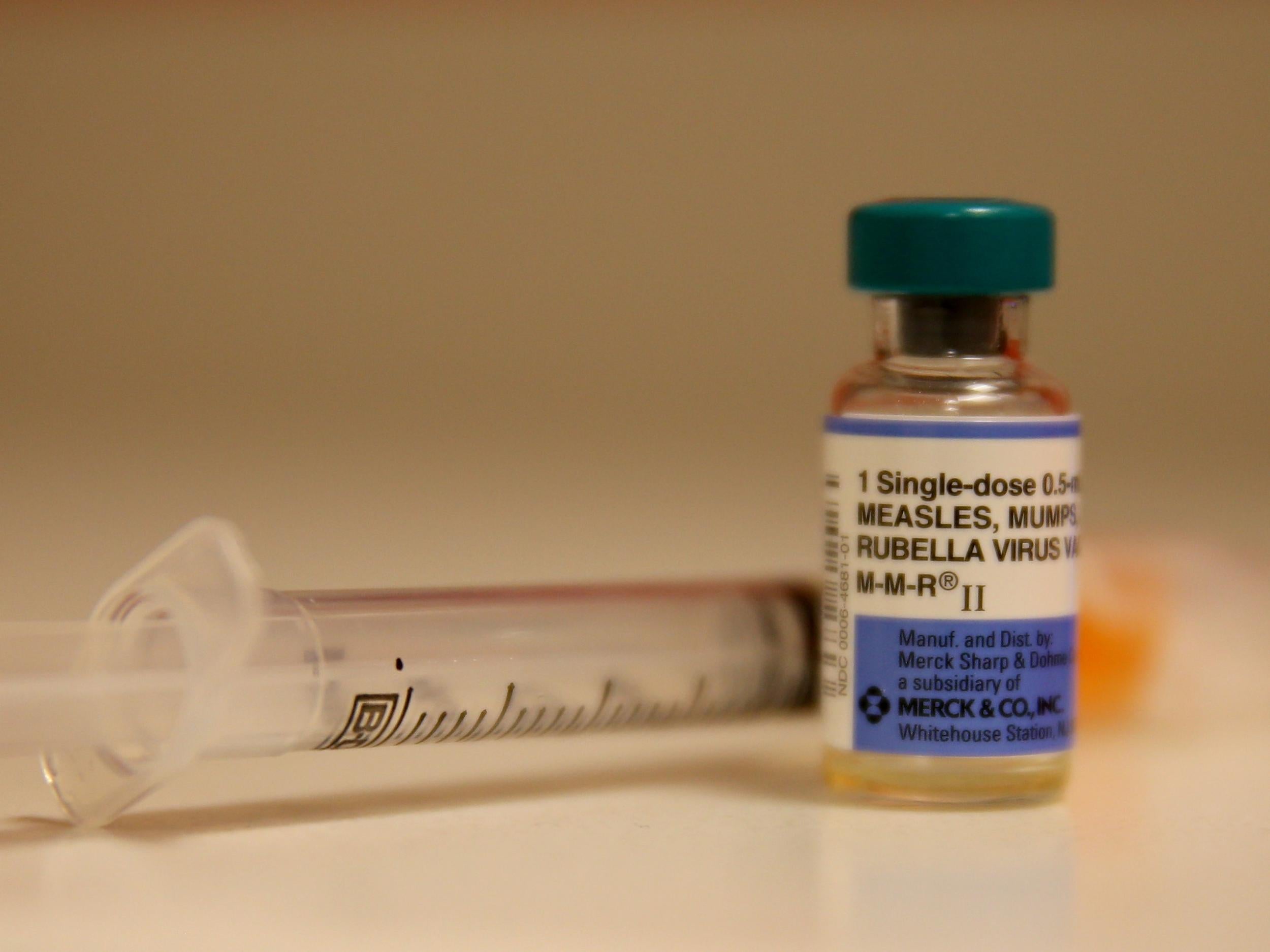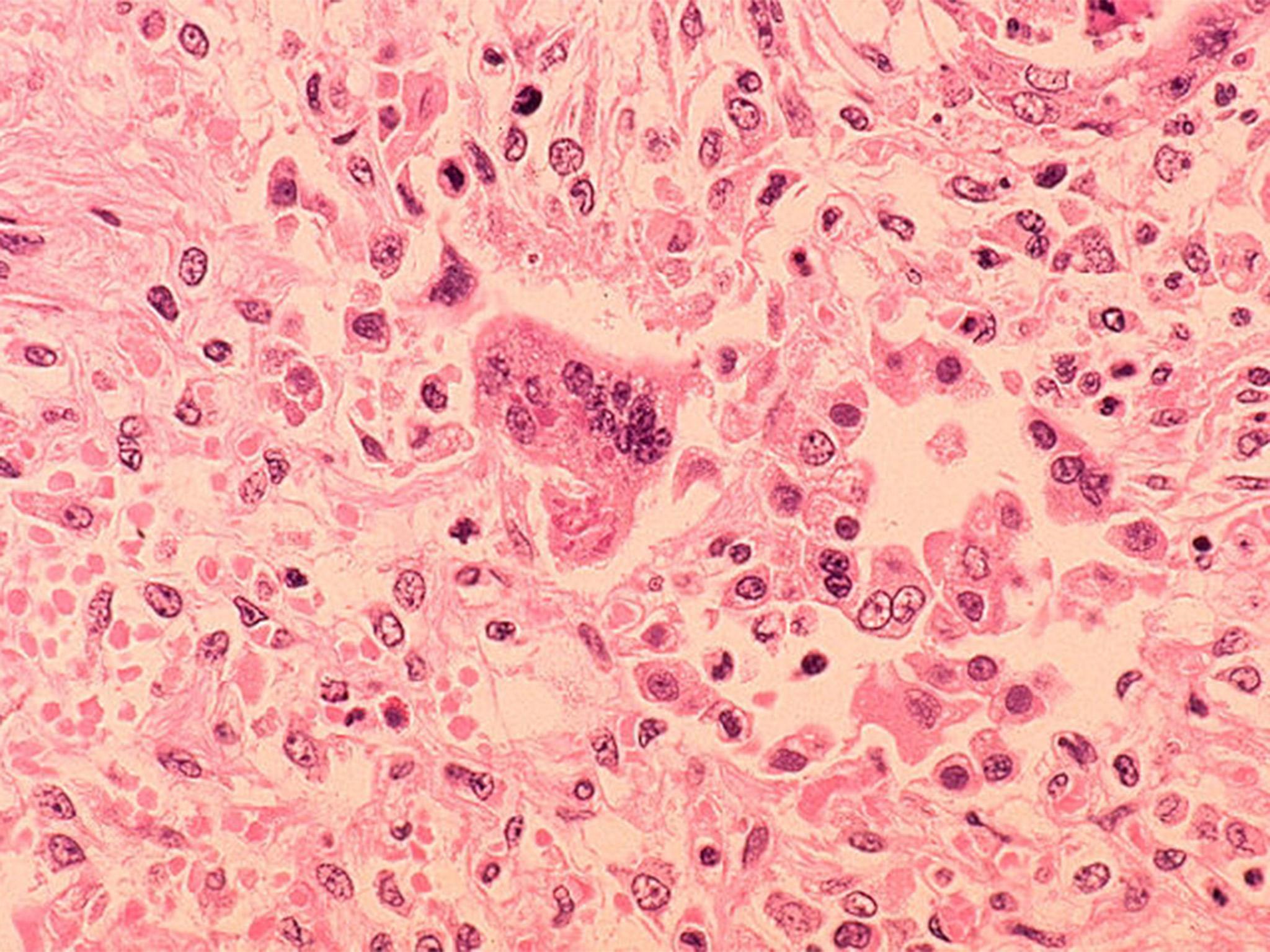Measles outbreak spreads across Europe as parents shun vaccinations, World Health Organisation warns
'Misinformation about vaccines continues to proliferate on the internet. This is dangerous'

Your support helps us to tell the story
From reproductive rights to climate change to Big Tech, The Independent is on the ground when the story is developing. Whether it's investigating the financials of Elon Musk's pro-Trump PAC or producing our latest documentary, 'The A Word', which shines a light on the American women fighting for reproductive rights, we know how important it is to parse out the facts from the messaging.
At such a critical moment in US history, we need reporters on the ground. Your donation allows us to keep sending journalists to speak to both sides of the story.
The Independent is trusted by Americans across the entire political spectrum. And unlike many other quality news outlets, we choose not to lock Americans out of our reporting and analysis with paywalls. We believe quality journalism should be available to everyone, paid for by those who can afford it.
Your support makes all the difference.Major measles outbreaks are spreading across Europe despite the availability of a safe, effective vaccine, the World Health Organisation has warned.
Anti-vaccine movements are believed to have contributed to low rates of immunisation against the highly contagious disease in countries such as Italy and Romania, which have both seen a recent spike in infections.
Zsuzsanna Jakab, the WHO’s regional director for Europe, said it was “of particular concern that measles cases are climbing in Europe” when they had been dropping for years.
Preliminary data for February indicate a sharp rise in measles cases, up from the 559 reported across the continent in January, said the WHO.
“Today’s travel patterns put no person or country beyond the reach of the measles virus,” said Dr Jakab. ”Outbreaks will continue in Europe, as elsewhere, until every country reaches the level of immunization needed to fully protect their populations.”
In Italy, an alarming resurgence of the disease has been blamed on the anti-vaccination stance of the populist Five Star Movement (M5S), which took a quarter of the vote in the country’s 2013 general election, reported The Guardian.

More than 700 cases of measles have been registered so far this year, according to the Italian health ministry, compared to 220 in the same period last year.
Measles is six times more contagious than the flu and complications arise in one in five cases including ear infections, pneumonia, deafness and even death.
In 1998 the British doctor Andrew Wakefield published a controversial and since-discredited study in The Lancet, which purported to show a link between the MMR vaccine – for measles, mumps and rubella – and autism in children.
Exhaustive scientific research, including a comprehensive 2014 review using data from more than 1.2 million children, have since concluded that no relationship between vaccination and autism.
Dr Wakefield was struck off the medical register after his report was found to be fraudulent.
However, many parents still choose not to vaccinate their children, with around 24,000 children in England each year at risk of measles, mumps and rubella because they have not been immunised against the diseases, according to Public Health England.
It is recommended that at least 95 per cent of the population is vaccinated against measles to ensure good protection against outbreaks of the disease.
But coverage is estimated to be lower than this in France, Germany, Italy, Poland, Romania, Switzerland and Ukraine.
Just 85.3 per cent of Italian two-year-olds were given measles vaccinations in 2015, down from 88 per cent in 2013, according to The Guardian.
Isabelle Sahinovic, the WHO’s Vaccine Safety Net co-ordinator, has said that “dangerous” misinformation about vaccines continues to spread online.
“Every day, misinformation about vaccines continues to proliferate on the internet,“ she said. ”This is dangerous.
“We need to make sure that all parents, caregivers, and healthcare professionals can easily access accurate and trustworthy information about vaccines.“
Italy’s M5S proposed a law against vaccinations in 2015 because of links to illnesses including leukaemia, autism and allergies.
And in Romania, where under 80 per cent of the population are vaccinated against measles, according to the Health Minister, anti-vaccination campaigns have been led by religious organisations and public figures.
Romanian celebrity Olivia Steer, a former TV presenter who is married to another TV star, has called vaccines a “myth”, saying on television that they are not necessary and can cause health problems including autism.
Poverty and lack of access to health services could also be behind increased outbreaks of measles in the country, reported RTE.
People who are infected with measles often have sore eyes, cold-like symptoms such as a runny nose or sneezing, develop small white spots on the inside of their cheeks and have red rashes on their skin.
The disease can be spread through bacteria, including when an infected person coughs or sneezes in close quarters to others, or by touching a non-infected person while having unclean hands.
Join our commenting forum
Join thought-provoking conversations, follow other Independent readers and see their replies
Comments